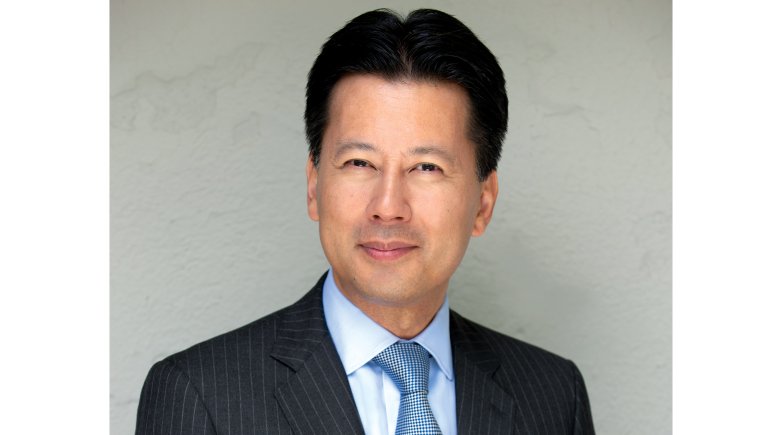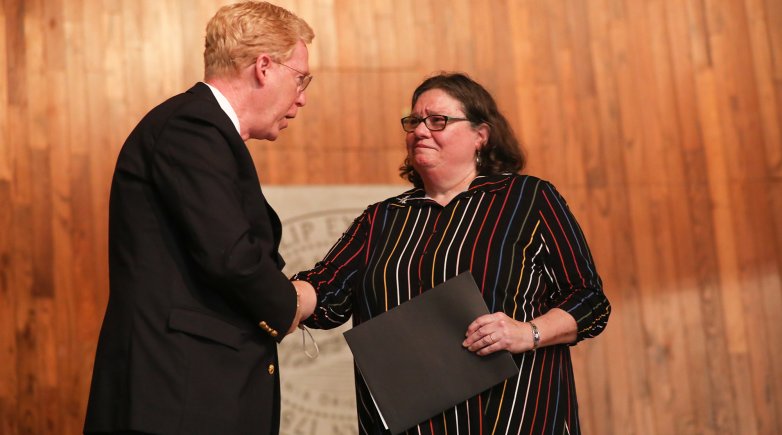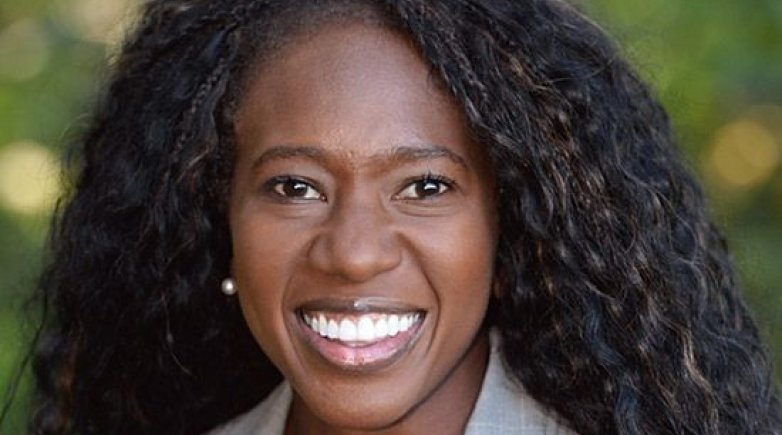Crucial conversations with Kenji Yoshino '87
With his latest book, NYU law professor offers practical advice for meaningful discussion.
When it comes to conversations about race, gender, sexuality and other core aspects of identity, the stakes have always been high. That’s especially true today, in an era dominated by stark political divisions, the ubiquity of social media and the ever-present threat of being “canceled.”
With his latest book, Say the Right Thing: How to Talk About Identity, Diversity and Justice, Kenji Yoshino ’87 aims to give readers the tools they need to navigate these challenging yet crucial conversations. A professor of constitutional law at New York University School of Law, Yoshino is also the faculty director of the school’s Meltzer Center for Diversity, Inclusion, and Belonging. He co-wrote the book with the center’s executive director, David Glasgow.
“We kept hearing from people who wanted to do the right thing but were terrified of getting the words wrong,” Yoshino says. “They feared they would either hurt somebody they cared about, or alternatively just get canceled themselves. That kind of overwhelming fear would stymie them as allies.”
Using real-world examples drawn from the authors’ own experiences and those of their colleagues and friends, as well as from TV appearances, social media posts and other public examples of noninclusive behavior, Say the Right Thing outlines a set of actionable principles that help readers meaningfully engage in difficult conversations. Beginning with how to avoid common conversational traps such as falling silent, deflecting blame or going on the attack, the book moves on to cover topics such as how to take a learning posture when it comes to identity conversations, how to disagree respectfully and how to apologize authentically.
As a gay Asian American man, Yoshino admits to drawing on deep personal experience for the book, including past conversations in which he came out to his loved ones. “We all remember those conversations we’ve had on these core issues of identity that have either gone really well or really poorly,” he says.
He also freely acknowledges how it feels to be on the other side of a difficult conversation about identity, in which he was the one who stumbled. “I have misgendered individuals who are trans, I have confused people of the same ethnic background for each other — everything that you have ever heard of, I have done myself,” Yoshino says. “It’s not a question of whether, it’s a question of when you’ll mess up in one of these identity conversations … and part of [the book] is to ask whether we can set aside this notion of canceling each other with the empathy that comes from the fact that someday this is going to be you.”
Unlike his previous books, which include Speak Now: Marriage Equality on Trial (2015) and A Thousand Times More Fair: What Shakespeare’s Plays Teach Us About Justice (2011), Yoshino emphasizes that Say the Right Thing is not based on a high intellectual concept. “This book is like a screwdriver,” he says. “It’s meant to be super practical, so people feel like they have the tools to have these conversations, and some safeguards on how badly they can go awry.”
In addition to his books and contributions to major academic journals, Yoshino also writes for popular media outlets such as the Los Angeles Times, The New York Times and The Washington Post. Writing has been a constant in his life since his years at Exeter, where he gravitated to the religion department, taking one class after another. “I learned how to write and how to love writing and reading at Exeter,” says Yoshino, who particularly remembers a class he took senior year with English Instructor Charles L. Terry. “I knew even then that he had mentored many great writers in the past, and he was willing to give students that kind of individualized attention.”

Yoshino also gained a guiding principle from one of Exeter’s core values, the need to combine knowledge with goodness. “I’ve always tried to think about how to bring whatever intellectual gifts I have to bear in the service of some moral end,” he says.
After majoring in English at Harvard, Yoshino studied at Oxford on a Rhodes Scholarship and earned his law degree from Yale Law School, where he specialized in civil rights. He was debating his future career path even as the Supreme Court handed down the first in a series of key decisions affirming LGBT rights in Romer v. Evans (1996). “I was writing up a storm and trying to decide whether to go into impact litigation for LGBT rights, or go into the academy,” he recalls. “I ultimately felt the academy would be a better pathway because I’m interested in writing about utopia as much as I am about litigating the real. That pathway was all about writing about LGBT rights and trying to bring the intellectual and the moral imperatives together — and I’ve never looked back.”
Yoshino returned to Yale Law as a professor, then moved to NYU a decade later. His current work with diversity and inclusion began as a result of his first book, Covering: The Hidden Assault on Our Civil RIghts (2006). It combined autobiographical anecdotes with an analysis of the continued discrimination faced by members of marginalized communities who refuse to “cover,” or play down aspects of their identity. “The reason that this form of discrimination has had such a robust life is in part because the law has very little to say about it,” Yoshino says. “I’m not sure the law can provide the solution because these interactions are so infinite and infinitesimal. We don’t want the courts to intervene and tell us what the core of anyone’s identity is.” Instead, the work must be done on the level of communities, organizations and ordinary people — people Yoshino hopes will benefit from the principles set out in his latest book.
Going forward, Yoshino plans to use Say the Right Thing as a text in his Leadership, Diversity, and Inclusion course at NYU Law. Gabriel Delabra ’13, who previously took the class with Yoshino, is co-teaching it. Now an associate at a law firm and an adjunct NYU Law professor, Delabra worked as a research assistant for Say the Right Thing and plans to clerk next year for United States Circuit Judge Guido Calabresi, a longtime Yale professor whom Yoshino also worked for years ago.
Although they only recently learned of their Exeter connection, Delabra recognizes in Yoshino the hallmarks of a good Harkness-style student — and teacher. “Kenji really takes his time with everything, not only in his social interactions, but in his written work,” Delabra says. “He takes everyone’s feedback very seriously and takes his time evaluating what I’ve contributed to the discussion. I think that’s kind of an Exeter contribution: Teachers were always very receptive to the ideas that students bring, and he has very much embraced that.”
Editor's Note: This article first appeared in the winter 2023 issue of The Exeter Bulletin.



